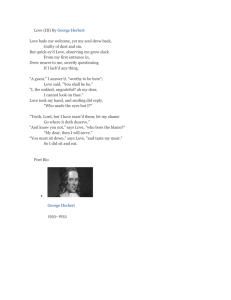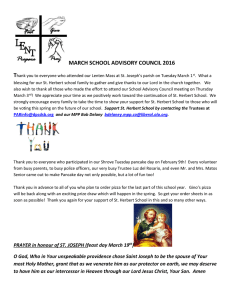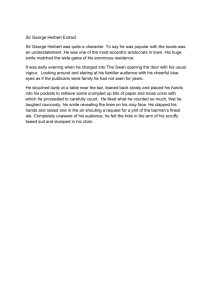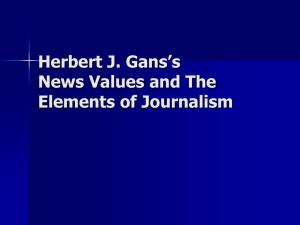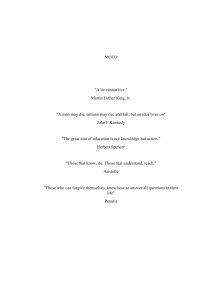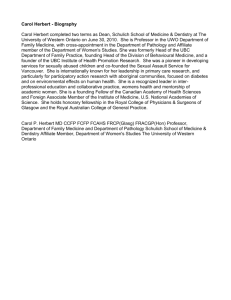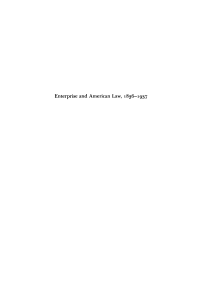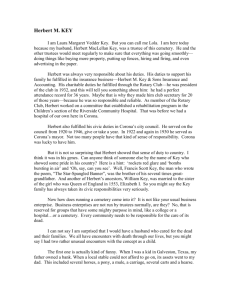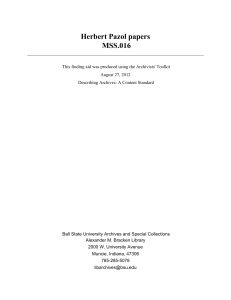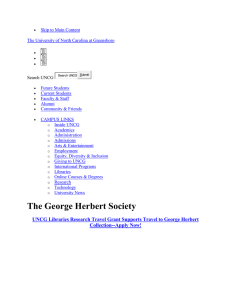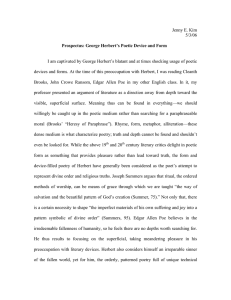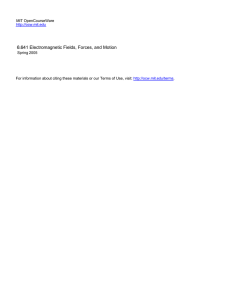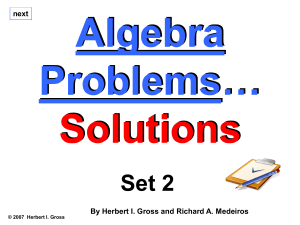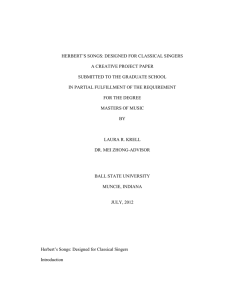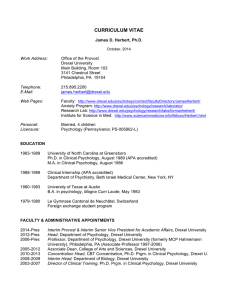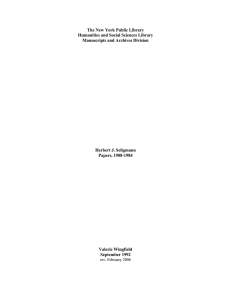Week 11 - silvaread142
advertisement
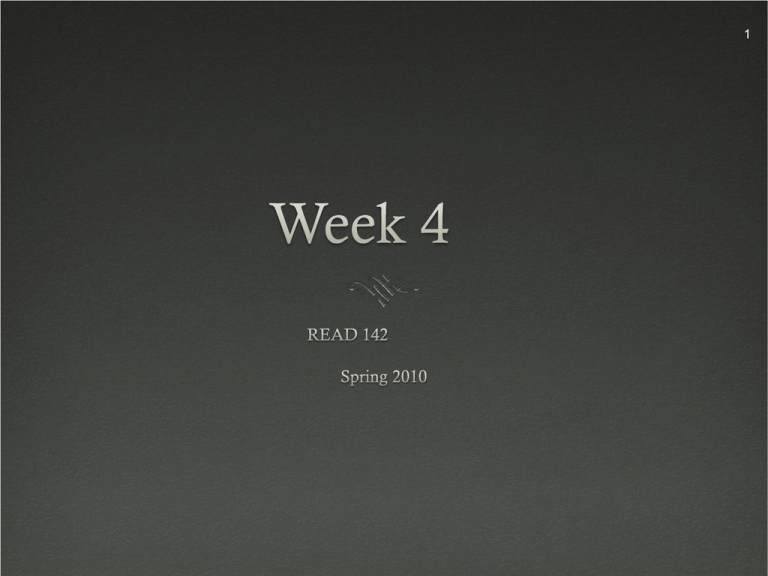
1 Today’s Agenda Go over midterm. Explain next week’s work. Review last week’s reading. Watch clip from Supersize Me. Discuss evidence. Work on group project. 2 Let’s go over your midterm. Make sure that your points are calculated correctly. Part 1 (20 points) Part 2 (15 points) Part 3 (20 points) Part 4 (10 points) Extra Credit (3 points) 3 Let’s go over next week’s work. 4 Let’s go over “Hounding the Innocent.” 5 Questions 1. What is the author’s main claim? 2. What are 2-3 reasons/evidence that Herbert uses to support his claim? 3. Identify 1-2 assumptions that the author makes. Remember to identify assumptions the AUTHOR makes, not assumptions about the reader’s knowledge of the subject. 4. What is one counter-argument that Herbert fails to consider? 5. Do you think the author has left something out intentionally? Why? 6 Read the following biography on Robert Herbert before answering questions 5 & 6. Bob Herbert joined The New York Times as an OpEd columnist in 1993. His twice a week column comments on politics, urban affairs and social trends. Prior to joining The Times, Mr. Herbert was a national correspondent for NBC from 1991 to 1993, reporting regularly on "The Today Show" and "NBC Nightly News." He had worked as a reporter and editor at The Daily News from 1976 until 1985, when he became a columnist and member of its editorial board. 7 In 1990, Mr. Herbert was a founding panelist of "Sunday Edition," a weekly discussion program on WCBS-TV in New York, and the host of Hotline, a weekly issues program on New York public television. He began his career as a reporter with The StarLedger in Newark, N.J., in 1970. He became its night city editor in 1973. Mr. Herbert has won numerous awards, including the Meyer Berger Award for coverage of New York City and the American Society of Newspaper Editors award for distinguished newspaper writing. He was chairman of the Pulitzer Prize jury for spot news reporting in 1993. 8 Born in Brooklyn on March 7, 1945, Mr. Herbert received a B.S. degree in journalism from the State University of New York (Empire State College) in 1988. He has taught journalism at Brooklyn College and the Columbia University Graduate School of Journalism. He lives in Manhattan on the Upper West Side. 9 Questions 6. Read the background information above. Does the author have the right background to speak with authority on this subject? 7. Do you trust this author? Why or why not? 8. Do you think the author is trying to manipulate your emotions? How? 10 What are the parts of an argument? CLAIM WHAT DO YOU THINK? REASONS WHY DO YOU THINK SO? EVIDENCE HOW DO YOU KNOW YOU’RE RIGHT? WARRANT WHAT ARE YOU ASSUMING? REFUTATION IT MAY BE ARGUED THAT ____. I’M STILL RIGHT BECAUSE ______. How do we know whether a claim is true? Establishing the absolute truth or falsity of most claims is extremely difficult. Instead, it is more useful to ask whether they are dependable. 12 How do we know if we can count on the claim? The greater the quality and quantity of evidence supporting the claim, the more we can depend on it. 13 When we encounter a claim, we can ask these questions: What is your proof ? Where’s the evidence? Are you sure it’s true? How do you know that’s true? Why do you believe that? Can you prove it? 14 What do you do if there’s conflicting evidence? We need to make judgments based on the preponderance of evidence. The more supporting evidence there is, the more we can accept the claim. 15 What do we mean by evidence? It is the explicit information shared by the communicator that is used to back up or justify the dependability of a claim. 16 Relevancy What kind of connection writer make between the evidence and the claim? Does the evidence really support the claim? The writer needs to explain the significance of the evidence to the claim. 17 Adequacy Is the evidence reliable? Consistent? Valid? Not too biased? Is the evidence authoritative? Who has written or published it? 18 Is it relevant & adequate? In a random survey last month of 470 members of the Sierra Club, 98 percent of those interviewed opposed drilling for oil in the Alaskan wilderness. Clearly then, the American people oppose such drilling. 19 Write headings on your chart. Type of Evidence Example Limitations of Evidence 20 Number Groups Each group will receive an article, or maybe two, about a type of evidence an writer uses to support his or her claim. Read the article. As a group, find an example and a limitation for that type of evidence. If you have more than one article, you can assign different group members to different articles. If you have a long article, split it up. Be sure you are able to explain what you have because you will have to explain it to a different group. 21 Color Groups Switch groups and sit according to you color. Take turns sharing what you have. By the time everyone is done, your handout should be complete. Keep your handout for next week. 22 Let’s put our desks back. One side of the room will get one article. The other side will get another article. You are going to get an article about giving in-state tuition to undocumented students. Both articles do not support giving in-state tuition to undocumented students. 23 Analyze the article for its use of evidence. 24 When you are finished… Find a person from the other side of the room and discuss your findings by going over your handout. Make sure each person has a chance to speak. When you are both finished, decide which article is more convincing and why. 25
